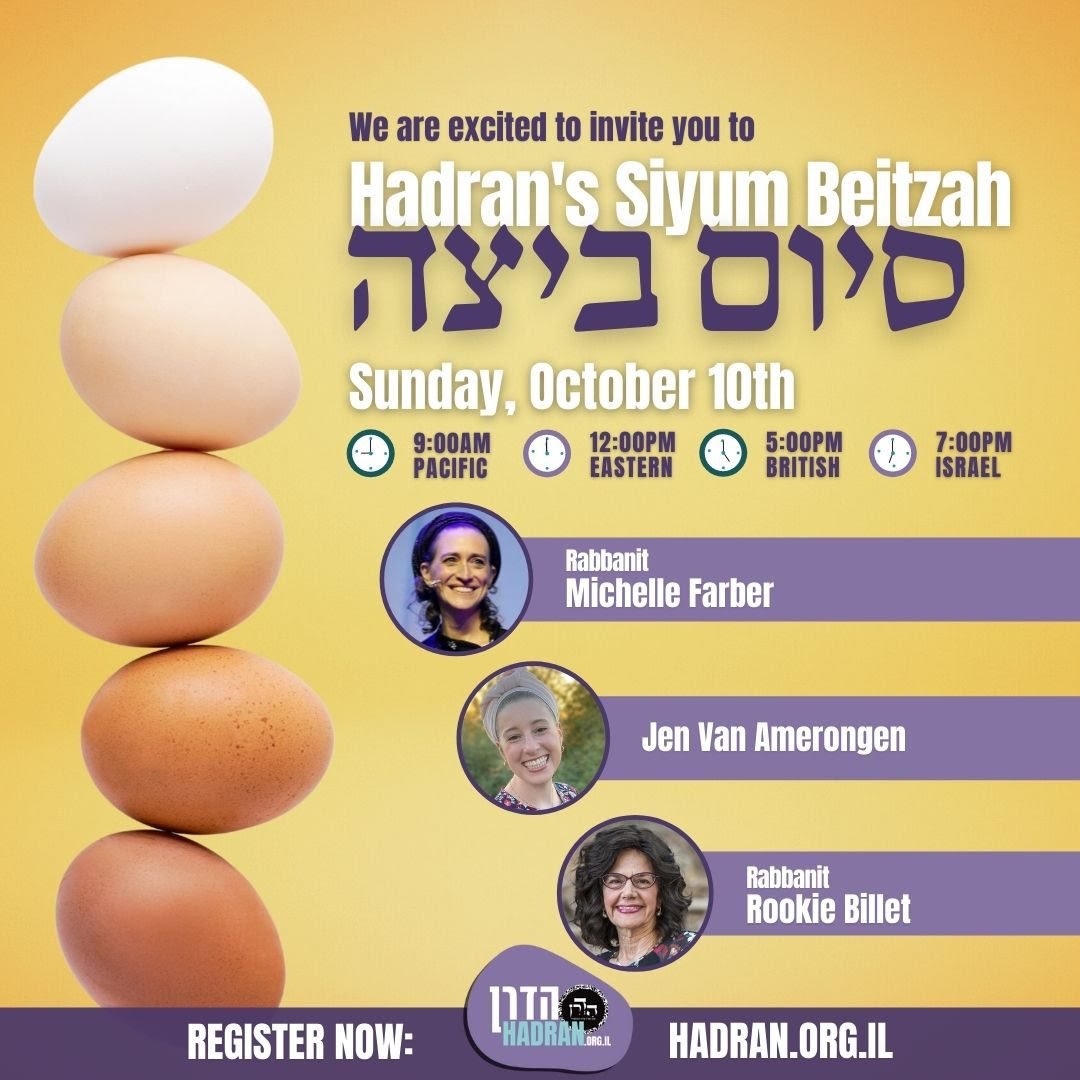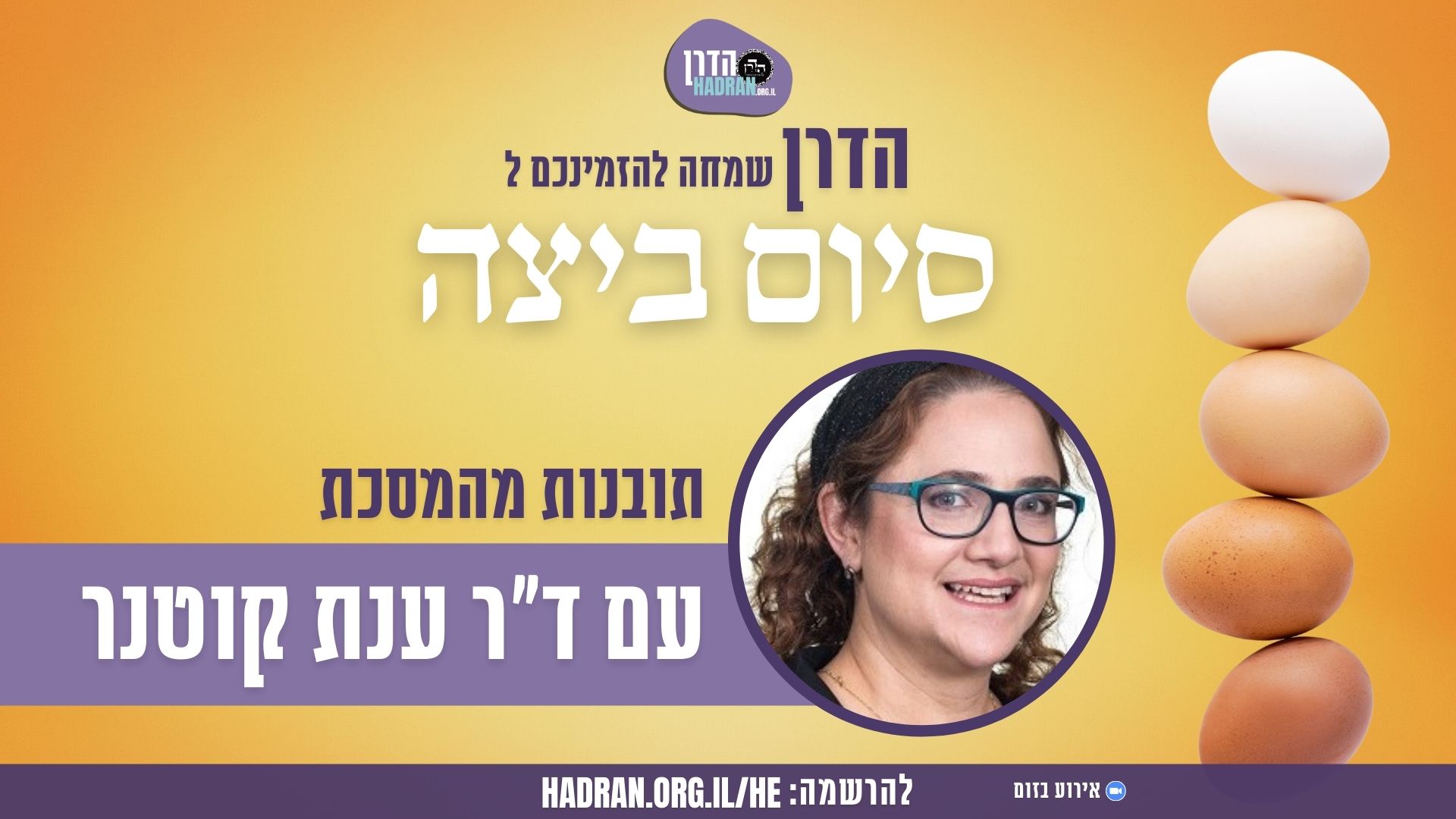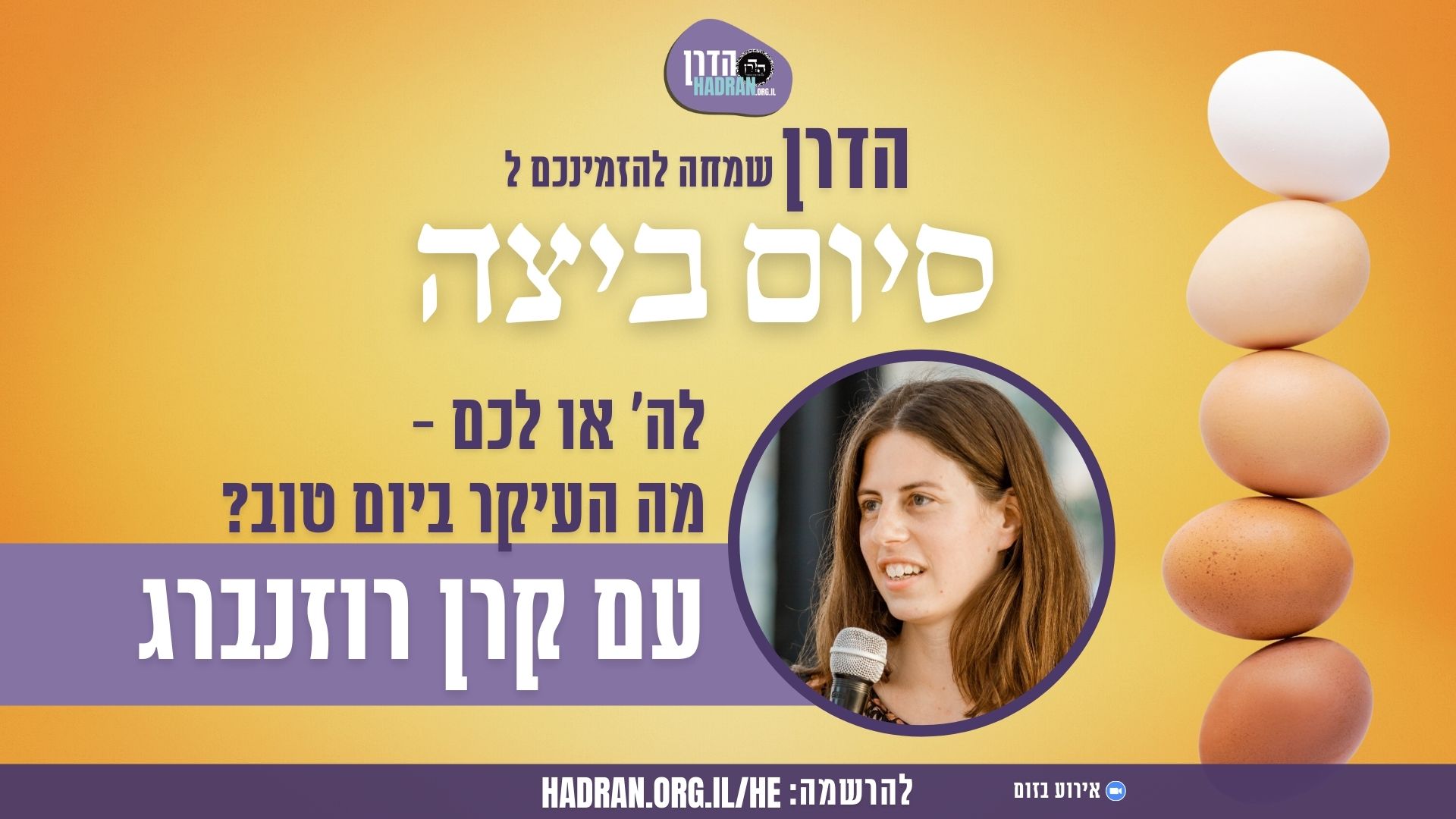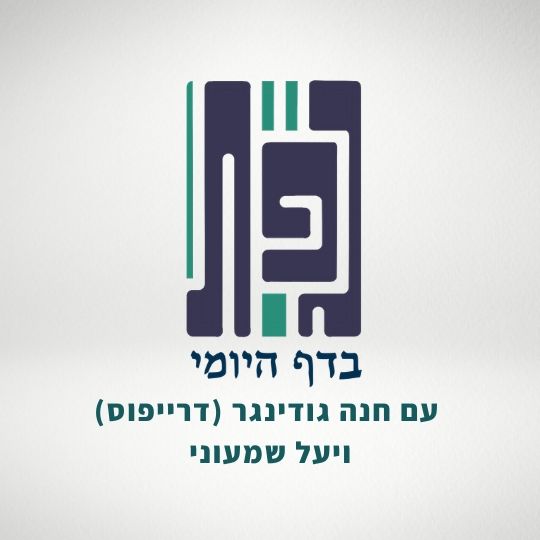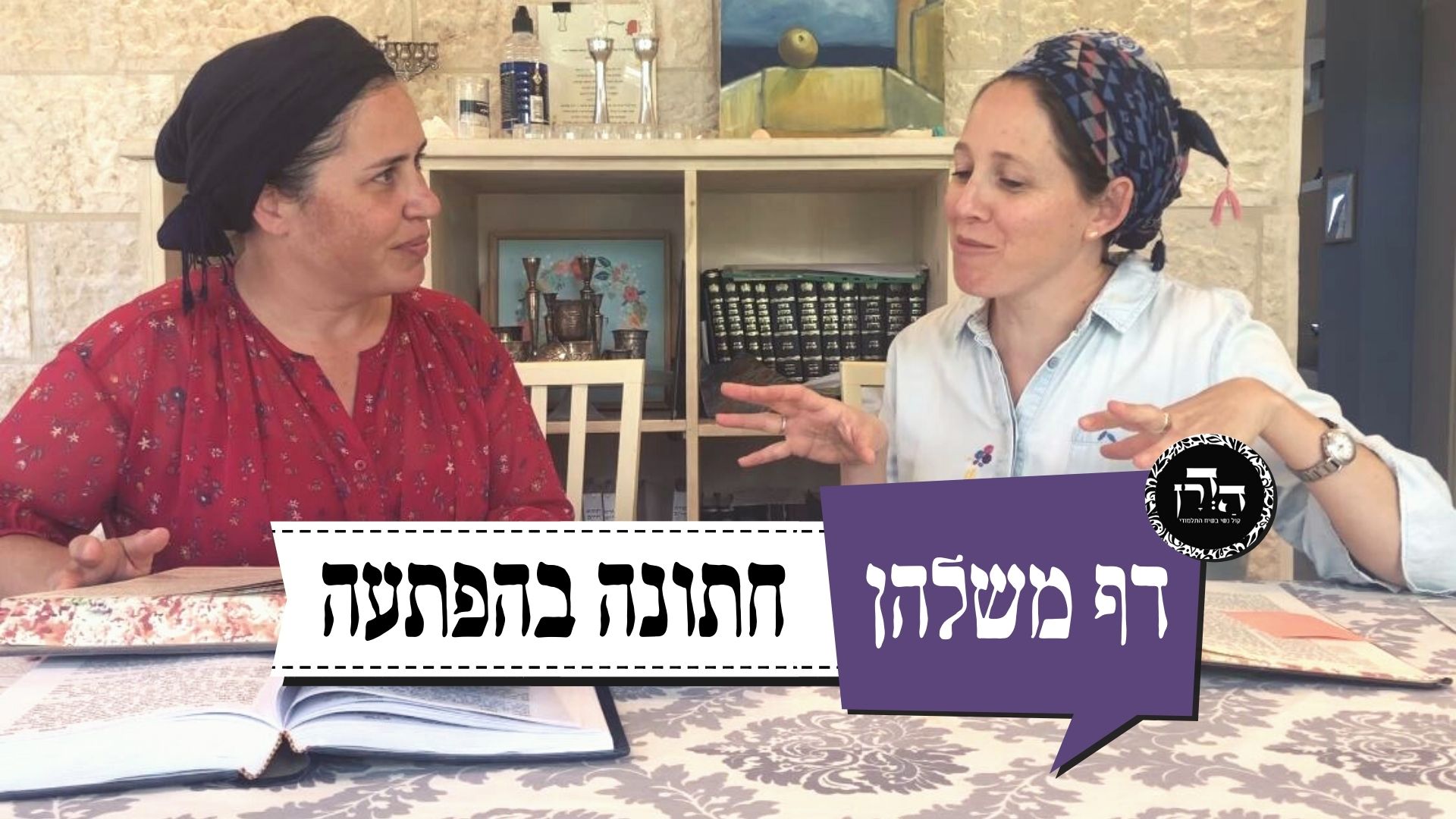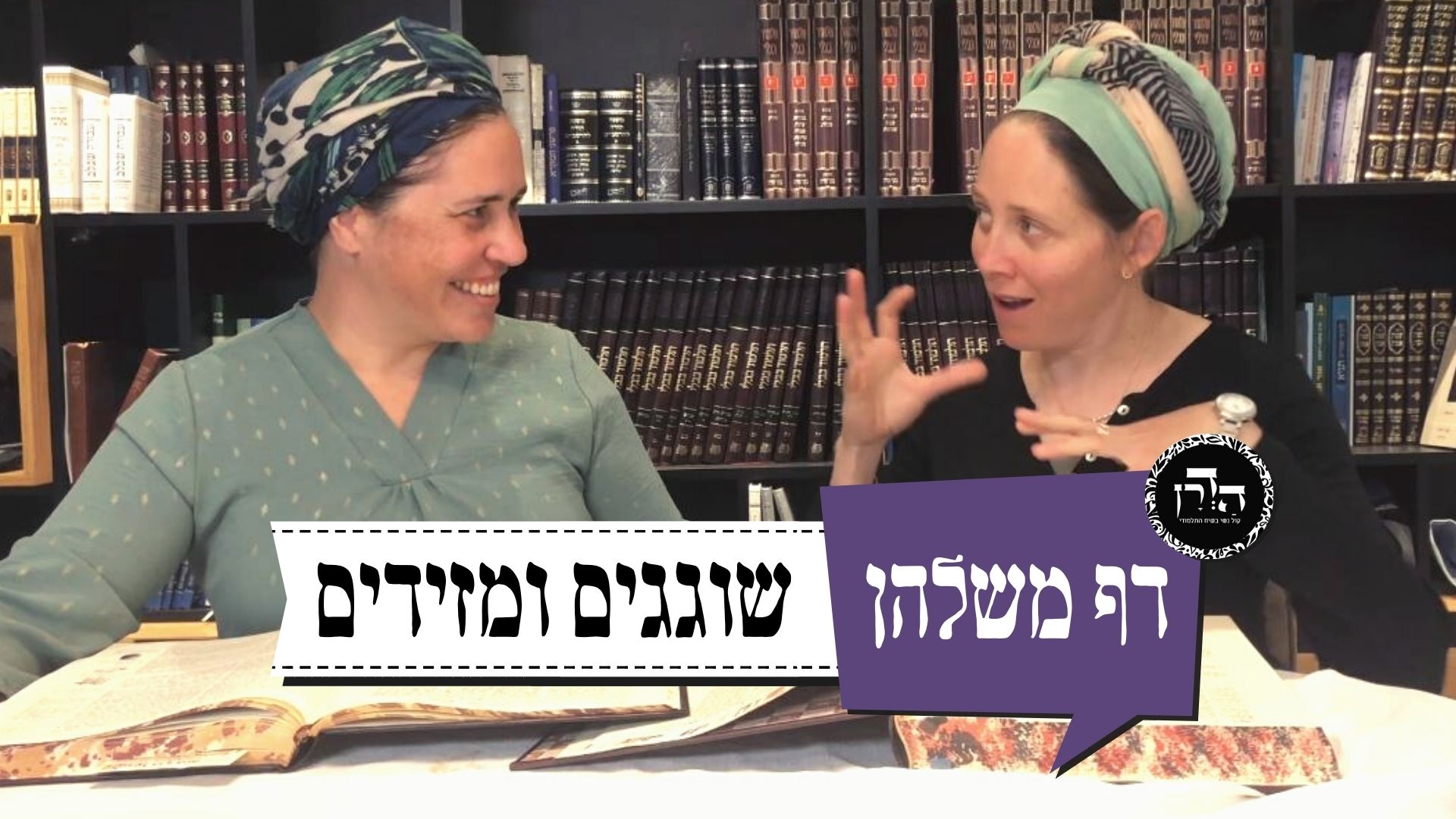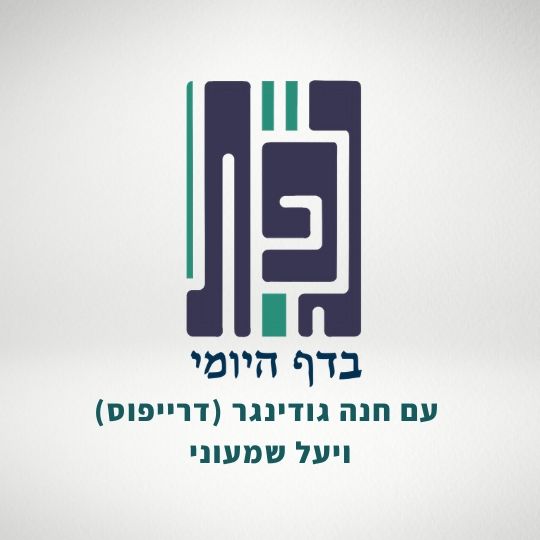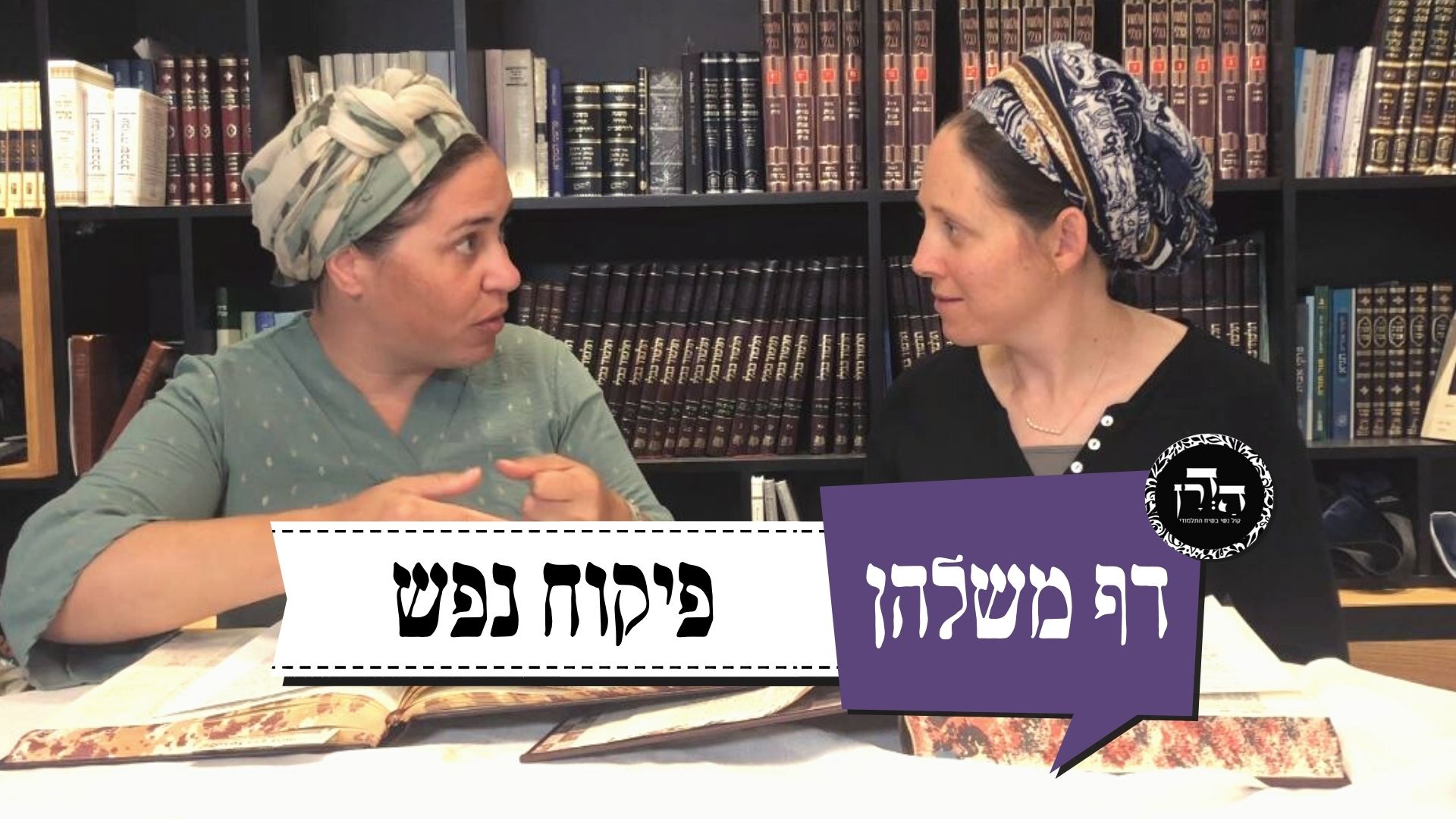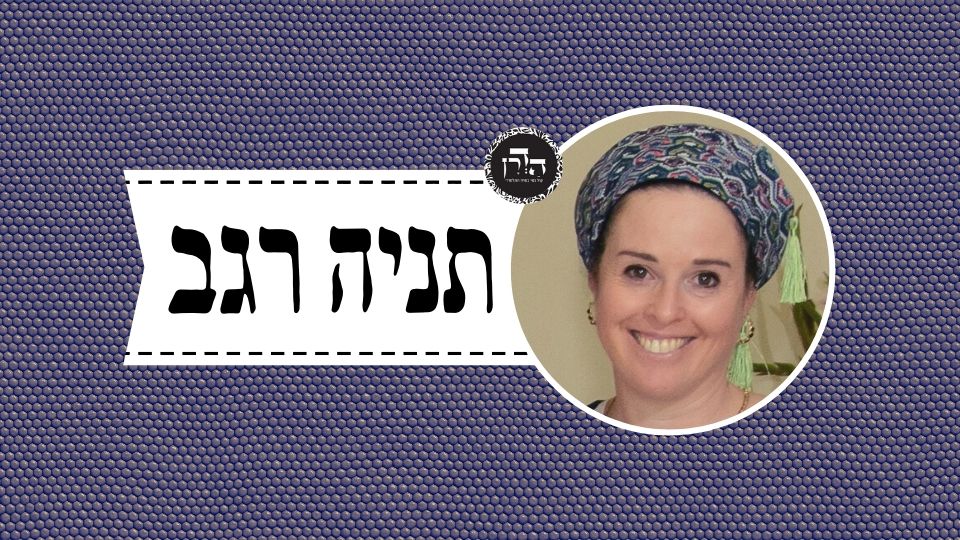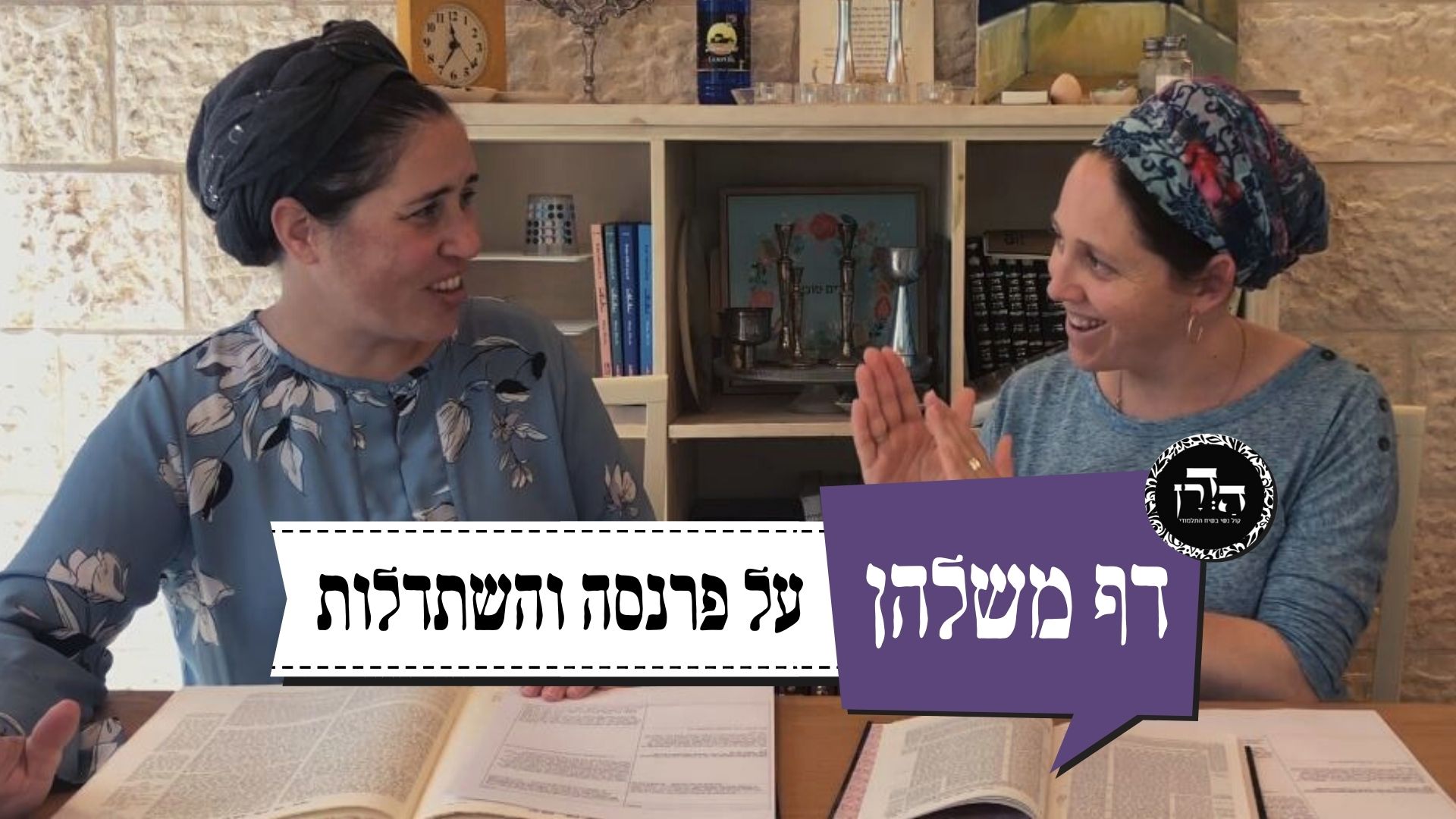ביצה ט
גִּלְגֵּל עִיסָּה מֵעֶרֶב יוֹם טוֹב — מַפְרִישׁ מִמֶּנָּה חַלָּתָהּ בְּיוֹם טוֹב. אֲבוּהּ דִּשְׁמוּאֵל אָמַר: אֲפִילּוּ גִּלְגֵּל עִיסָּה מֵעֶרֶב יוֹם טוֹב — אֵין מַפְרִישׁ מִמֶּנָּה חַלָּתָהּ בְּיוֹם טוֹב.
If one kneaded dough on a Festival eve, i.e., the day before the Festival, he may separate its ḥalla on the Festival. In general, one may not separate teruma and tithes on a Festival. However, since it is permitted to bake bread on the Festival for the requirements of the day, and because bread may not be eaten unless ḥalla has first been separated from it, separating ḥalla is considered a necessary stage in the preparation of bread, and the Sages permitted it. Shmuel’s father said: Even if one kneaded dough on a Festival eve, he may not separate its ḥalla on the Festival, as he should have separated ḥalla then. The mitzva of separating ḥalla goes into effect at the time of the kneading of the dough.
לֵימָא פְּלִיגָא דִּשְׁמוּאֵל אַדַּאֲבוּהּ (דִּשְׁמוּאֵל). דְּאָמַר שְׁמוּאֵל: חַלַּת חוּצָה לָאָרֶץ, אוֹכֵל וְהוֹלֵךְ וְאַחַר כָּךְ מַפְרִישׁ!
The Gemara comments: Let us say that Shmuel disagrees with his father, as Shmuel said: With regard to ḥalla from outside of Eretz Yisrael, where the separation of ḥalla is a rabbinic obligation, one may proceed to eat the bread and afterward separate the ḥalla from the remainder of the dough. This statement indicates that the separation of ḥalla outside of Eretz Yisrael is not required to render the bread permitted, in contrast to the separation of teruma and tithes from produce. Consequently, separating ḥalla is permitted on a Festival, as it does not involve a significant change. This contradicts the opinion of Shmuel’s father, who prohibited separating ḥalla that could have been separated before the Festival.
אָמַר רָבָא: מִי לֹא מוֹדֶה שְׁמוּאֵל שֶׁאִם קָרָא עָלֶיהָ שֵׁם שֶׁאֲסוּרָה לְזָרִים?
Rava said: This is not necessarily the case. Doesn’t Shmuel concede that if one designated a piece of dough as ḥalla outside of Eretz Yisrael, it is prohibited to non-priests? This proves that even Shmuel admits that a certain measure of sanctity applies to the ḥalla. Therefore, he might also agree with his father that it is prohibited to separate ḥalla on a Festival even outside of Eretz Yisrael.
מַתְנִי׳ בֵּית שַׁמַּאי אוֹמְרִים: אֵין מוֹלִיכִין אֶת הַסּוּלָּם מִשּׁוֹבָךְ לְשׁוֹבָךְ, אֲבָל מַטֵּהוּ מֵחַלּוֹן לְחַלּוֹן. וּבֵית הִלֵּל מַתִּירִין.
MISHNA: Beit Shammai say: One may not carry a ladder, which was used for reaching doves, from one dovecote to another. However, one may move it slightly so that he tilts it from one window to another in the same dovecote. And Beit Hillel permit even carrying a ladder from one dovecote to another.
גְּמָ׳ אָמַר רַב חָנָן בַּר אַמֵּי: מַחְלוֹקֶת בִּרְשׁוּת הָרַבִּים, דְּבֵית שַׁמַּאי סָבְרִי: הָרוֹאֶה אוֹמֵר לְהָטִיחַ גַּגּוֹ הוּא צָרִיךְ, וּבֵית הִלֵּל סָבְרִי: שׁוֹבָכוֹ מוֹכִיחַ עָלָיו. אֲבָל בִּרְשׁוּת הַיָּחִיד — דִּבְרֵי הַכֹּל מוּתָּר.
GEMARA: Rav Ḥanan bar Ami said: This dispute applies only in a case where one moves the ladder in the public domain, as Beit Shammai hold that one who sees someone carrying his ladder will say to himself: He must need the ladder to plaster his roof, to prevent rainwater from dripping into his house. In other words, an onlooker will suspect him of performing prohibited labor on the Festival. And Beit Hillel hold that his dovecote proves about him that he is not moving the ladder for the purpose of a transgression, as it is evident that he is placing the ladder alongside the second dovecote, and everyone will understand his intention. However, in the private domain, where one will not be observed by strangers, everyone agrees that it is permitted.
אִינִי? וְהָא אָמַר רַב יְהוּדָה אָמַר רַב: כׇּל מָקוֹם שֶׁאָסְרוּ חֲכָמִים מִפְּנֵי מַרְאִית הָעַיִן, אֲפִילּוּ בְּחַדְרֵי חֲדָרִים אָסוּר! תַּנָּאֵי הִיא. דְּתַנְיָא: שׁוֹטְחָן בַּחַמָּה, אֲבָל לֹא כְּנֶגֶד הָעָם. רַבִּי (אֱלִיעֶזֶר) וְרַבִּי שִׁמְעוֹן אוֹסְרִין.
The Gemara asks: Is that so? But didn’t Rav Yehuda say that Rav said: Wherever the Sages prohibited an action due to the appearance of prohibition, even if one performs the act in his innermost chamber, where no one will see it, it is prohibited. The Gemara answers: This is a dispute between tanna’im, as it is taught in a baraita: One whose clothes fell into water on Shabbat or a Festival may spread them out to dry in the sun, but he may not do so opposite the masses, i.e., in a place where people can see him, lest they suspect him of laundering on Shabbat. However, Rabbi Eliezer and Rabbi Shimon prohibit doing so even in private.
אִיכָּא דְּאָמְרִי, אָמַר רַב חָנָן בַּר אַמֵּי: מַחְלוֹקֶת בִּרְשׁוּת הַיָּחִיד, דְּבֵית שַׁמַּאי אִית לְהוּ דְּרַב יְהוּדָה אָמַר רַב, וּבֵית הִלֵּל לֵית לְהוּ דְּרַב יְהוּדָה אָמַר רַב, אֲבָל בִּרְשׁוּת הָרַבִּים — דִּבְרֵי הַכֹּל אָסוּר.
Some say a different version of this discussion. Rav Ḥanan bar Ami said: The dispute applies to the private domain, as Beit Shammai are of the opinion that the halakha is in accordance with that which Rav Yehuda said that Rav said, and therefore Beit Shammai apply the decree to the private domain. And Beit Hillel, by contrast, are of the opinion that the halakha is not in accordance with that which Rav Yehuda said that Rav said. However, in the public domain, everyone agrees that it is prohibited to move the ladder.
לֵימָא רַב דְּאָמַר כְּבֵית שַׁמַּאי?
The Gemara challenges this interpretation: Should we say that Rav stated his opinion in accordance with that of Beit Shammai? According to Rav Ḥanan bar Ami, only Beit Shammai maintains that anything prohibited by the Sages due to appearances may not be performed even in private.
תַּנָּאֵי הִיא, דְּתַנְיָא: שׁוֹטְחָן בַּחַמָּה, אֲבָל לֹא כְּנֶגֶד הָעָם. רַבִּי (אֱלִיעֶזֶר) וְרַבִּי שִׁמְעוֹן אוֹסְרִין.
The Gemara rejects this suggestion: No, it is a dispute between tanna’im, as it is taught in a baraita: If clothes fell into water on Shabbat or a Festival, one may spread them out in the sun but not opposite the masses. Rabbi Eliezer and Rabbi Shimon prohibit doing so. Rav Ḥanan bar Ami accepts the opinion of the first tanna in the baraita, who rejects Rav’s principle. According to the opinion of that tanna, it can be claimed that Beit Hillel also rejected Rav’s principle, and they permitted moving the ladder in private but not in public. Rav, on the other hand, follows the opinion of Rabbi Eliezer and Rabbi Shimon in interpreting the opinion of Beit Hillel.
מַתְנִיתִין דְּלָא כִּי הַאי תַּנָּא, דְּתַנְיָא, אָמַר רַבִּי שִׁמְעוֹן בֶּן אֶלְעָזָר: מוֹדִים בֵּית שַׁמַּאי וּבֵית הִלֵּל שֶׁמּוֹלִיכִין אֶת הַסּוּלָּם מִשּׁוֹבָךְ לְשׁוֹבָךְ. לֹא נֶחְלְקוּ אֶלָּא לְהַחְזִיר, שֶׁבֵּית שַׁמַּאי אוֹמְרִים: אֵין מַחְזִירִין, וּבֵית הִלֵּל אוֹמְרִים: אַף מַחְזִירִין.
§ With regard to the mishna itself, the Gemara comments: The mishna is not in accordance with the opinion of this tanna, as it is taught in a baraita: Rabbi Shimon ben Elazar said that Beit Shammai and Beit Hillel agree that one may carry a ladder from one dovecote to another to take doves; they disagree only after one has finished at the second dovecote, whether it is permitted to replace the ladder to its original spot at the first dovecote, as Beit Shammai say: One may not replace the ladder, and Beit Hillel say: One may even replace it.
אָמַר רַבִּי יְהוּדָה: בַּמֶּה דְּבָרִים אֲמוּרִים — בְּסוּלָּם שֶׁל שׁוֹבָךְ, אֲבָל בְּסוּלָּם שֶׁל עֲלִיָּה — דִּבְרֵי הַכֹּל אָסוּר. רַבִּי דּוֹסָא אוֹמֵר: מַטֵּהוּ מֵחַלּוֹן לְחַלּוֹן. אֲחֵרִים אוֹמְרִים מִשּׁוּם רַבִּי דּוֹסָא: אַף מְדַדִּין בּוֹ.
Rabbi Yehuda said: In what case is this statement said? With regard to a dovecote ladder, which clearly serves the purpose of taking doves. However, in the case of an attic ladder, which has a variety of uses, everyone agrees that it is prohibited, as this will raise suspicions. Rabbi Dosa says: One may tilt it from one window to another in the same dovecote. Aḥerim say in the name of Rabbi Dosa: One may even shift the ladder from one place to another by shuffling its legs.
בְּנֵי רַבִּי חִיָּיא נְפוּק לְקִרְיָיתָא. כִּי אֲתוֹ, אֲמַר לְהוּ אֲבוּהוֹן: כְּלוּם מַעֲשֶׂה בָּא לְיֶדְכֶם? אָמְרוּ לוֹ: סוּלָּם בָּא לְיָדֵינוּ, וְהִתַּרְנוּהוּ. אָמַר לָהֶם: צְאוּ וְאִסְרוּ מַה שֶּׁהִתַּרְתֶּם.
The Gemara relates: The sons of Rabbi Ḥiyya went out to the villages to attend to their business. When they came back, their father said to them: Did any incident requiring a ruling of halakha come to your notice? They said to him: The issue of carrying an attic ladder to a dovecote came to our notice, and we permitted it. Rabbi Ḥiyya said to them: Go out and prohibit that which you permitted.
אִינְהוּ סְבוּר: מִדְּקָא אָמַר רַבִּי יְהוּדָה בְּסוּלָּם שֶׁל עֲלִיָּה לָא פְּלִיגִי, מִכְּלָל דְּתַנָּא קַמָּא סָבַר פְּלִיגִי. וְלָא הִיא, רַבִּי יְהוּדָה טַעְמֵיהּ דְּתַנָּא קַמָּא קָא מְפָרֵשׁ.
The Gemara explains: Rabbi Ḥiyya’s sons thought that from the fact that Rabbi Yehuda said that Beit Shammai and Beit Hillel do not disagree with regard to an attic ladder, this proves by inference that the first tanna holds that they do disagree. Consequently, Rabbi Ḥiyya’s sons thought that according to the first tanna, Beit Hillel permit even the use of a loft ladder, and they ruled in accordance with this opinion. But that is not so, as Rabbi Yehuda does not disagree with him, but rather he explains the reason of the first tanna.
מִמַּאי, מִדְּקָתָנֵי: מוֹלִיכִין אֶת הַסּוּלָּם מִשּׁוֹבָךְ לְשׁוֹבָךְ, וְאִי סָלְקָא דַעְתָּךְ בְּסוּלָּם שֶׁל עֲלִיָּה פְּלִיגִי, הַאי ״מוֹלִיכִין אֶת הַסּוּלָּם מִשּׁוֹבָךְ לְשׁוֹבָךְ״, ״מוֹלִיכִין אֶת הַסּוּלָּם לְשׁוֹבָךְ״ מִבְּעֵי לֵיהּ. אֶלָּא לָאו הָכִי קָאָמַר: שֶׁל שׁוֹבָךְ — אִין, שֶׁל עֲלִיָּה — לָא.
From where can this be inferred? From the fact that the first tanna teaches: One may carry a ladder from one dovecote to another. And if it enters your mind to say that Beit Shammai and Beit Hillel disagree with regard to an attic ladder, if so, this phrase: One may carry a ladder from one dovecote to another, is inexact, as he should have said: One may carry a ladder to a dovecote. Rather, isn’t this what the tanna said: With regard to a dovecote ladder, yes, it is permitted to move it; however, in the case of an attic ladder, no, one may not use it.
וְאִידַּךְ: מִי קָתָנֵי ״סוּלָּם שֶׁל שׁוֹבָךְ״? ״מִשּׁוֹבָךְ לְשׁוֹבָךְ״ קָתָנֵי, וַאֲפִילּוּ לְכַמָּה שׁוֹבָכִין.
The Gemara asks: And the others, Rabbi Ḥiyya’s sons, what is their reasoning? The Gemara answers that they would reply: Is it taught in the baraita: A dovecote ladder? It teaches: From one dovecote to another, and this simply means that it is permitted to do so even with regard to several dovecotes.
אִיכָּא דְאָמְרִי, אָמְרוּ לוֹ: הִטּוּי סוּלָּם שֶׁל עֲלִיָּה בָּא לְיָדֵינוּ וְהִתַּרְנוּהוּ. אָמַר לָהֶם: צְאוּ וְאִסְרוּ מַה שֶּׁהִתַּרְתֶּם. אִינְהוּ סְבוּר: מַאי דְּקָא אָסַר תַּנָּא קַמָּא, קָא שָׁרֵי רַבִּי דּוֹסָא. וְלָא הִיא, מַאי דְּקָא שָׁרֵי תַּנָּא קַמָּא, קָא אָסַר רַבִּי דּוֹסָא.
Some say a slightly different version of this incident. Rabbi Ḥiyya’s sons said to him: The tilting of an attic ladder came to our notice, and we permitted it. We were asked whether an attic ladder positioned near a dovecote before the Festival may be moved from one window to another in the same dovecote, and we allowed it. Rabbi Ḥiyya said to them: Go out and prohibit that which you permitted. The Gemara explains that they thought: That which the first tanna prohibits, i.e., moving an attic ladder, Rabbi Dosa permits, i.e. Rabbi Dosa is more lenient than the first tanna and permits moving even an attic ladder from one window to another. And that is not so. Rather, that which the first tanna permits, moving a dovecote ladder, Rabbi Dosa prohibits. He is more stringent and maintains that even a dovecote ladder may be moved only by tilting rather than in the usual manner.
אֲבָל מַטֵּהוּ מֵחַלּוֹן לְחַלּוֹן וְכוּ׳. אַלְמָא, גַּבֵּי שִׂמְחַת יוֹם טוֹב בֵּית שַׁמַּאי לְחוּמְרָא וּבֵית הִלֵּל לְקוּלָּא.
§ The mishna taught: However, everyone agrees that one may tilt a dovecote ladder from one window to another in the same dovecote. The Gemara infers: Apparently, with regard to rejoicing on the Festival, the opinion of Beit Shammai is stringent, and that of Beit Hillel is lenient.
וּרְמִינְהִי: הַשּׁוֹחֵט חַיָּה וָעוֹף בְּיוֹם טוֹב, בֵּית שַׁמַּאי אוֹמְרִים: יַחְפּוֹר בַּדָּקָר וִיכַסֶּה, וּבֵית הִלֵּל אוֹמְרִים: לֹא יִשְׁחוֹט אֶלָּא אִם כֵּן הָיָה לוֹ עָפָר מוּכָן מִבְּעוֹד יוֹם.
And the Gemara raises a contradiction from the first mishna of the tractate (2a): With regard to one who slaughters an undomesticated animal or a fowl on a Festival, Beit Shammai say: He may dig earth with a shovel and cover the blood, and Beit Hillel say: He may not slaughter an undomesticated animal or a fowl, unless he had earth prepared for that purpose while it was still day. This indicates that it is Beit Shammai who are concerned for the honor and joy of the Festival, and they are therefore lenient with regard to covering the blood; whereas Beit Hillel do not share the same concern and are stringent about covering the blood, despite the fact that their ruling might adversely affect the joy of the Festival.
אָמַר רַבִּי יוֹחָנָן: מוּחְלֶפֶת הַשִּׁיטָה. מִמַּאי: דִּלְמָא עַד כָּאן לָא קָאָמְרִי בֵּית שַׁמַּאי הָתָם, אֶלָּא הֵיכָא דְּאִיכָּא דָּקָר נָעוּץ, אֲבָל הֵיכָא דְּלֵיכָּא דָּקָר נָעוּץ — לָא.
Rabbi Yoḥanan said: The attribution of the opinions of the tanna’im is reversed. The opinion attributed to Beit Hillel is actually that of Beit Shammai, and vice versa. The Gemara rejects Rabbi Yoḥanan’s answer: From where do you infer that this extreme conclusion is necessarily the case? A different explanation is possible: Perhaps Beit Shammai say their opinion, that it is permitted to cover the blood, only there, where there is already a shovel embedded in the earth ready for this purpose, and therefore there are grounds for a lenient ruling. However, where there is no embedded shovel, they did not permit it.
וְאִי נָמֵי: עַד כָּאן לָא קָאָמְרִי בֵּית הִלֵּל הָכָא, אֶלָּא דְּשׁוֹבָכוֹ מוֹכִיחַ עָלָיו, אֲבָל הָתָם — לָא.
Alternatively, it is possible to say that Beit Hillel say their opinion, that an act is permitted for the sake of the joy of the Festival, only here, where his dovecote, the place where he ultimately positions the ladder, proves with regard to him that he intended to use his ladder for a permitted purpose; but there, where there is no equivalent proof, they were not lenient. This shows that there is no clear contradiction between the rulings in the two cases.
אֶלָּא, אִי קַשְׁיָא — הָא קַשְׁיָא: בֵּית שַׁמַּאי אוֹמְרִים: לֹא יִטּוֹל אֶלָּא אִם כֵּן נִעְנַע מִבְּעוֹד יוֹם, וּבֵית הִלֵּל אוֹמְרִים: עוֹמֵד וְאוֹמֵר זֶה וְזֶה אֲנִי נוֹטֵל.
Rather, the Gemara retracts the previous version and suggests that Rabbi Yoḥanan issued his statement with regard to a different issue: If the dispute between Beit Shammai and Beit Hillel is difficult, this is what is difficult: It was taught in a different mishna (10a): Beit Shammai say: One may not take fledgling doves on a Festival unless he shook them, as an act of preparation, while it was still day. And Beit Hillel say: It is indeed necessary to perform some act of preparation to permit the taking of fledglings on a Festival, but this does not have to be done by shaking them. Rather, it is enough if one stands the day before and says: I will take this dove and that one.
אַלְמָא, גַּבֵּי שִׂמְחַת יוֹם טוֹב בֵּית שַׁמַּאי לְחוּמְרָא וּבֵית הִלֵּל לְקוּלָּא, וּרְמִינְהִי: הַשּׁוֹחֵט חַיָּה וָעוֹף בְּיוֹם טוֹב, אָמַר רַבִּי יוֹחָנָן: מוּחְלֶפֶת הַשִּׁיטָה.
Apparently, with regard to rejoicing on the Festival, the opinion of Beit Shammai is stringent and that of Beit Hillel is lenient. And the Gemara raises a contradiction as above: With regard to one who slaughters an undomesticated animal or a fowl on a Festival, Beit Shammai are lenient and allow one to dig with a shovel to cover the blood, due to the joy of the Festival, whereas Beit Hillel do not permit one to slaughter at all, unless there was a shovel ready from the day before. It was with regard to this contradiction that Rabbi Yoḥanan said: The attribution of the opinions is reversed.
וְדִלְמָא לָא הִיא: עַד כָּאן לָא אָמְרִי בֵּית שַׁמַּאי, אֶלָּא הֵיכָא דְּאִיכָּא דָּקָר נָעוּץ
The Gemara challenges this explanation: But perhaps that is not so, as a different explanation is possible: Beit Shammai only state their lenient opinion, that it is permitted to cover the blood, where there is an embedded shovel.

